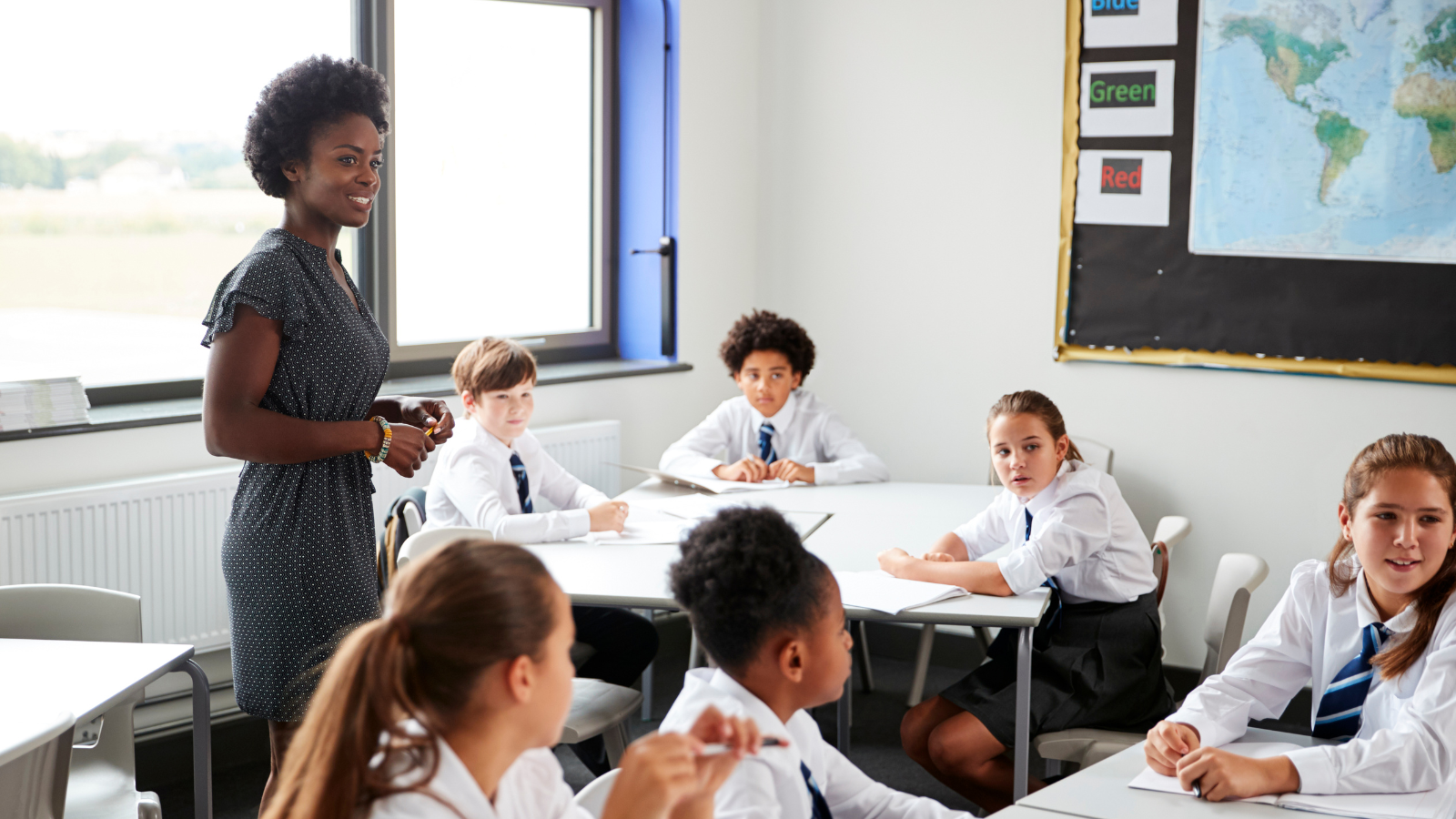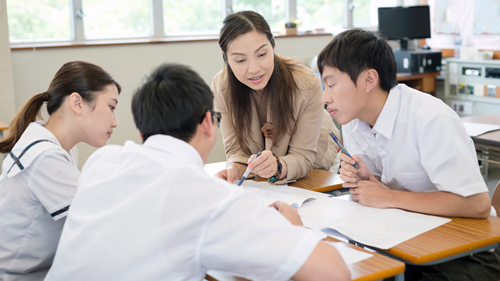Sexual harassment in schools is on the rise. What can be done?

By Tegan Davies, former Welsh Youth Parliament member for Torfaen
When I was 13, I was continually harassed by an unknown peer as I was boarding the school bus home. Sexual assault was such a taboo at the time, at my young age, that I had absolutely no idea how to go about it. Eventually, I told my head of year and a few of my teachers and peers. I was told by some to “take it as a compliment”, which confused me further - whether this was something that should be making me as uncomfortable as it was, whether it really was just a ‘bit of fun’. Still, I had no idea who was doing it - each time I turned around, the crowd was full of boys much older than me, all smirking, all intimidating.
A big crowd versus a small girl – no CCTV, no witnesses, just my word that somebody had violated me (but that I wasn’t sure who). And apart from grouping together all the boys on the bus list and lecturing them via PowerPoint presentation on the importance of keeping their hands to themselves, what else could they do? All I really could do was change bus services and hope they didn’t follow suit.
A few months before, I had been told by a teacher that my sitting position - legs not crossed, thighs slightly on display from my skirt riding up whilst sat at my computer desk - made me seem like I was ‘asking for it’. I was wearing a knee-length skirt and over-the-knee socks, completely within the realms of the uniform dress-code, and I was twelve years old. I wondered out loud just what she supposed I was asking for.
Schools have missed the mark on supporting the victims of sexual abuse for far too long now – too many children (and now, adults) are scarred, not only by the traumatic experiences inflicted upon them by their peers, but also by the lack of understanding and sufficient aid given to them when reporting such incidents. In return, children too have a poor understanding of sexual education and consent, and as such are developing harmful mind-sets and tendencies that put themselves, and others, at risk.
Last week, The Guardian reported that incidents of sexual harassment have increased – a Freedom of Information request found that between 2019-2022, there was a 40% increase of sexual assault, and “an even greater increase in reports of incidents on school property” . The recount of my own experiences dates back to as early as 2015, meaning that the school environment has only gotten worse. Rape Crisis England and Wales reported that 1 in 6 children have been sexually abused – this includes all situations – meaning the danger that children are in is only increasing. This statistic, paired with the shocking findings of the Everyone’s Invited campaign, that compiled a list of nearly 3000 schools (primary, secondary, college) submitted by past pupils across the UK who had been victims of sexual assault or harassment, is a deeply worrying reality that the school environment isn’t as safe as it seems.
These revelations beg the desperate question: what can we do as a society to protect children from this abuse, or from committing this behaviour? Such an avenue is difficult to navigate, yet so crucial to get right. The Government has released statutory guidance aimed at schools to aid in the teaching of Relationships and Sex Education (RSE) – but a quick read of this material proves that much change is anticipated if we are to ever put an end to harassment in schools. As of 2019, it became compulsory for every primary school to teach Relationships Education to pupils, but leaves sex education to be optional. Of course, it is difficult to judge the mental capability of children when it comes to understanding more mature topics, and the thought of these being brought up has the potential to make parents of children at primary school age uncomfortable. I would argue, however, that these uncomfortable conversations are vital – even if they seem targeted at too young of an age – over 400 of the Everyone’s Invited submissions include the names of primary schools, meaning that this behaviour has been recorded to have started before puberty and further education on sex and consent. I know that, at the age of eleven, I had no idea what did and did not constitute as sexual assault – thinking even a bum pinch was just a bit of fun due to a lack of understanding of sex, the human anatomy and basic boundaries when it came to others. There are various mentions of the phrase “age appropriate” throughout – proving that the topic itself is seen as too mature yet the acts being committed are most definitely not. The topic of consent is not mentioned in the guidance until secondary school, arguably far too late for the past experiences of thousands.

The RSE guidance has been issued since my time in school, and it is a great first step in the right direction. My sex education was always scattered, few and far between with a massive emphasis on the religious elements rather than the biological, essential knowledge. To me, the issue I and perhaps even my own perpetrators suffered from was the inadequate schooling on sex as a whole. The educational environment I was in meant I grew up with this belief that sex was almost a swear word – a blasphemous act to discuss and equally as shameful to think about before marriage. I recall me and my friends whispering, “ess-eee-ecks” to avoid getting caught, in case anybody found out that we knew. Our first time touching base on a topic even remotely close to it was in year 5, at the age of 10, in which I had my first ever panic attack as a woman explained to us about the dangers of wearing tampons. Two minutes after I had left the room, my mate came out in a similar fashion. Then, as the talk concluded, we were ordered not to discuss this further on the playground, with our friends, and certainly not with the boys, who had instead been treated to an hour extra of playing football in the sun outside.
We questioned it then, and I’ll question it now – what was so sacred that we had to hide from these boys? Why shouldn’t they know about what happens to us once a month, why it happens, how we go through what we do for their own future benefit? Sure, there has been a case that boys mature slower than girls, and so was their own adolescence seen as purer and more sanctified than our own? Why couldn’t they be sat in here with us, thanking the heavens that they would never have their own insides rip themselves apart and rebuild every couple of weeks, and be even more appreciative of their mothers, sisters, friends? The viral ‘97%’ statistic sent shockwaves throughout the world – that this is the amount of women who have been sexually harassed or assaulted in their lifetime. There is absolutely no denying that men experience such trouble – Rape Crisis reported that 1 in 18 men have suffered the same abuse – could this all have been avoided, or at least prevented, had our governments put more pressure on our educators to just explain?
I cannot change my own past, as harrowing as the realisation of such a truth really is. This is why I will never stop fighting, pushing, pressuring for the children growing up now, for my future children, for our future Prime Ministers and for children not yet thought about. We need to do better, and we need to protect the safety and happiness of childhood – even if it means explaining to them things that don’t appear quite relevant just yet. I wish on every tainted memory I have, every individual experience from around the globe, every unwanted contact, whistle, jeer – that children in the future will one day not know what it is like to feel unsafe in the institution in which their welfare should be imperative and of prime concern.

